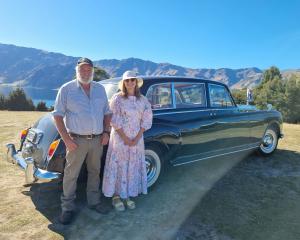
In a report released in July, the Civil Aviation Authority said the crash occurred when the Cessna 185 aircraft hit terrain when turning during poor visibility.
It was determined the aircraft was not positioned correctly in the valley to perform such a manoeuvre and the pilots were unable to maintain terrain clearance.
The plane struck a ridgeline before coming to rest across a nearby gully.
On board the aircraft were Christchurch aircraft engineer Paul MacDonald, his flight instructor wife Emma and their two children Georgina (7) and Benjamin (5).
All four were killed in the accident.
They had been on their way from Wanaka to visit friends at Branches Station in Queenstown when the crash occurred.
While it was only a 20-minute flight, conditions on the day were poor, with significant low cloud.In its report, the CAA said the pilots breached CAA rules by failing to obtain a weather forecast before the flight.
The report said the conditions were "not conducive for flight under visual flight rules for the intended route to be flown" and the flight "should not have proceeded".
The pilots breached CAA rules by doing so.
CAA rule 91.301 Meteorological Minima requires aircraft operating above 3000ft or 1000ft above terrain to maintain a minimum distance from cloud of 2km horizontally and 1000ft vertically, and with a minimum flight visibility of 5km.
The forecast for the flight path had been for cloud down to 3000ft and only 4km of visibility.
"The flight as planned should not have proceeded due to the en-route weather conditions existing at the time of the accident.
"On encountering the combination of the low cloud base and rising terrain, a decision by the pilots to turn back early would have been prudent when the requirements of meteorological minima could no longer be met," the report said.
"However, for reasons undetermined, they continued with their original plan and significantly eroded their options for continued safe flight," the report said.
It was concluded reverse turning the plane in poor visibility was initiated after the pilots saw that the flight path over the saddle at the head of the valley was blocked by low cloud.
The CAA stressed the importance of adhering to its rules, obtaining a weather brief-ing before flying and ensuring that there was always the option of turning back during a flight.












